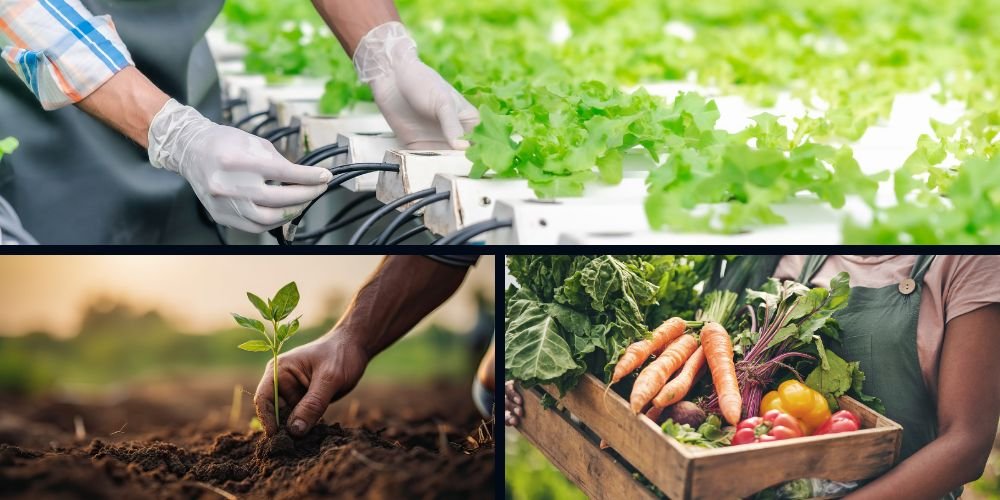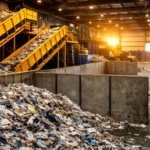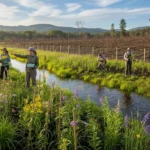Sustainable food production is essential for meeting global food demand while safeguarding environmental health and promoting social equity. This article explores the principles, practices, and innovations that drive sustainable food production, highlighting its crucial role in ensuring food security and mitigating environmental impacts.
Understanding Sustainable Food Production
Sustainable food production entails agricultural practices that meet present food requirements without compromising the ability of future generations to meet their own needs. It involves minimizing environmental impact, conserving natural resources, and promoting social equity throughout the food supply chain.
Agroecology
Agroecology is a holistic approach to sustainable food production that integrates ecological principles into agricultural systems. It emphasizes biodiversity, soil health, and ecosystem resilience to enhance productivity and sustainability while minimizing reliance on synthetic inputs. Agroecological practices, including crop diversification, agroforestry, and integrated pest management, promote ecological balance and resilience in farming landscapes.
Organic Farming
Organic farming practices prioritize soil health, biodiversity, and environmental sustainability by eschewing synthetic fertilizers, pesticides, and genetically modified organisms. Organic farmers utilize natural inputs, such as compost, cover crops, and crop rotation, to improve soil fertility, control pests, and enhance ecosystem services. Organic certification standards ensure compliance with strict environmental stewardship and animal welfare criteria, providing consumers with assurance of sustainable farming practices.
Precision Agriculture
Precision agriculture leverages digital technologies, remote sensing, and data analytics to optimize resource utilization and enhance agricultural productivity. By employing precision technologies such as GPS-guided tractors, drones, and sensor networks, farmers can precisely monitor and manage crop inputs, irrigation, and pest control, reducing waste and environmental impact while maximizing yields. Precision agriculture enhances productivity, profitability, and sustainability by enabling targeted interventions based on real-time data and analysis.
Advantages of Sustainable Food Production
Sustainable food production offers numerous benefits, including environmental conservation, resilience to climate change, and enhanced food security and nutrition.
Environmental Conservation
Sustainable food production practices promote environmental conservation by reducing greenhouse gas emissions, conserving water resources, and preserving biodiversity. Agroecological and organic farming methods minimize soil erosion, water pollution, and habitat destruction associated with conventional agriculture, protecting ecosystems and mitigating environmental degradation. By prioritizing ecological integrity and resource efficiency, sustainable food production contributes to the long-term health and resilience of natural systems.
Climate Resilience
Sustainable food production systems are more resilient to the impacts of climate change, such as extreme weather events, droughts, and shifting growing seasons. Agroecological practices enhance soil health and water retention, making farms more resistant to drought and water scarcity. Crop diversification and genetic diversity in agroecosystems increase resilience to pests, diseases, and climate variability, reducing the vulnerability of food systems to environmental stressors and ensuring food security in a changing climate.
Food Security and Nutrition
Sustainable food production enhances food security and nutrition by promoting diversified, locally adapted food systems that provide year-round access to nutritious foods. Agroecological and organic farming practices yield diverse crops with higher nutritional content, thereby contributing to improved dietary diversity and better health outcomes. Sustainable food systems prioritize equitable access to healthy food, reducing food insecurity and malnutrition while strengthening local economies and food sovereignty.
Applications of Sustainable Food Production
Sustainable food production principles and practices apply to various agricultural systems, including small-scale, industrial, and urban agriculture.
Small-Scale Farming
Small-scale farming operations often employ sustainable food production methods, such as agroecology and organic farming, to maximize productivity while minimizing environmental impact. Smallholder farmers prioritize biodiversity, soil health, and community resilience, practicing traditional knowledge and agroecological techniques that have been passed down through generations. Sustainable small-scale farming contributes to local food security, rural development, and cultural preservation, supporting livelihoods and community resilience.
Industrial Agriculture
Industrial agriculture is increasingly adopting sustainable food production practices, such as precision agriculture and conservation tillage, to improve efficiency and reduce its environmental footprint. Large-scale farms utilize technology-driven solutions to optimize resource use, minimize waste, and enhance productivity while complying with regulatory standards for environmental stewardship. Sustainable intensification strategies strike a balance between agricultural expansion and environmental conservation, ensuring sustainable food production that meets growing global demand.
Urban Agriculture
Urban agriculture plays a vital role in sustainable food production. It utilizes vacant lots, rooftops, and community gardens to grow food in urban areas. Urban farmers utilize vertical farming, hydroponics, and aquaponics to optimize space and resource utilization, thereby producing fresh, locally grown food for urban residents. Urban agriculture enhances food security, promotes community engagement, and reduces food miles, contributing to a more resilient and sustainable food system.
Future Trends in Sustainable Food Production
The future of sustainable food production is characterized by innovations in agroecology, regenerative agriculture, and alternative protein sources, which aim to meet the challenges of population growth, climate change, and resource scarcity.
Regenerative Agriculture
Regenerative agriculture focuses on restoring soil health, sequestering carbon, and enhancing ecosystem services through holistic land management practices that promote sustainable land use. Regenerative farmers prioritize soil carbon sequestration, biodiversity conservation, and water management to improve resilience to climate change and enhance agricultural sustainability. Regenerative agriculture contributes to climate mitigation, biodiversity conservation, and sustainable food production by rebuilding soil fertility and enhancing ecosystem resilience.
Alternative Protein Sources
Alternative protein sources, including plant-based meats, cultured meats, and insect protein, provide sustainable alternatives to traditional livestock farming. These innovative protein sources require fewer resources, produce lower greenhouse gas emissions, and have a smaller environmental footprint than conventional animal agriculture. By diversifying protein sources and reducing reliance on animal products, alternative protein technologies promote sustainable food production and address environmental and ethical concerns associated with livestock farming.
Circular Food Systems
Circular food systems aim to minimize waste and maximize resource efficiency by closing nutrient loops, reducing food loss and waste, and promoting circular economy principles throughout the food supply chain. They prioritize regenerative agriculture, local food production, and sustainable consumption practices to create a closed-loop system where waste is minimized and resources are fully utilized. By promoting resource efficiency and reducing environmental impact, circular food systems contribute to a more sustainable and resilient food system for future generations.
Conclusion
Sustainable food production is essential for addressing global food security challenges, mitigating environmental impact, and promoting social equity and resilience in food systems. By embracing the principles of agroecology, organic farming, and precision agriculture, stakeholders across the food supply chain can collaborate to build a more sustainable and resilient food system. Innovations in regenerative agriculture, alternative protein sources, and circular food systems offer promising solutions to enhance sustainability and ensure a healthy and prosperous future for all.





